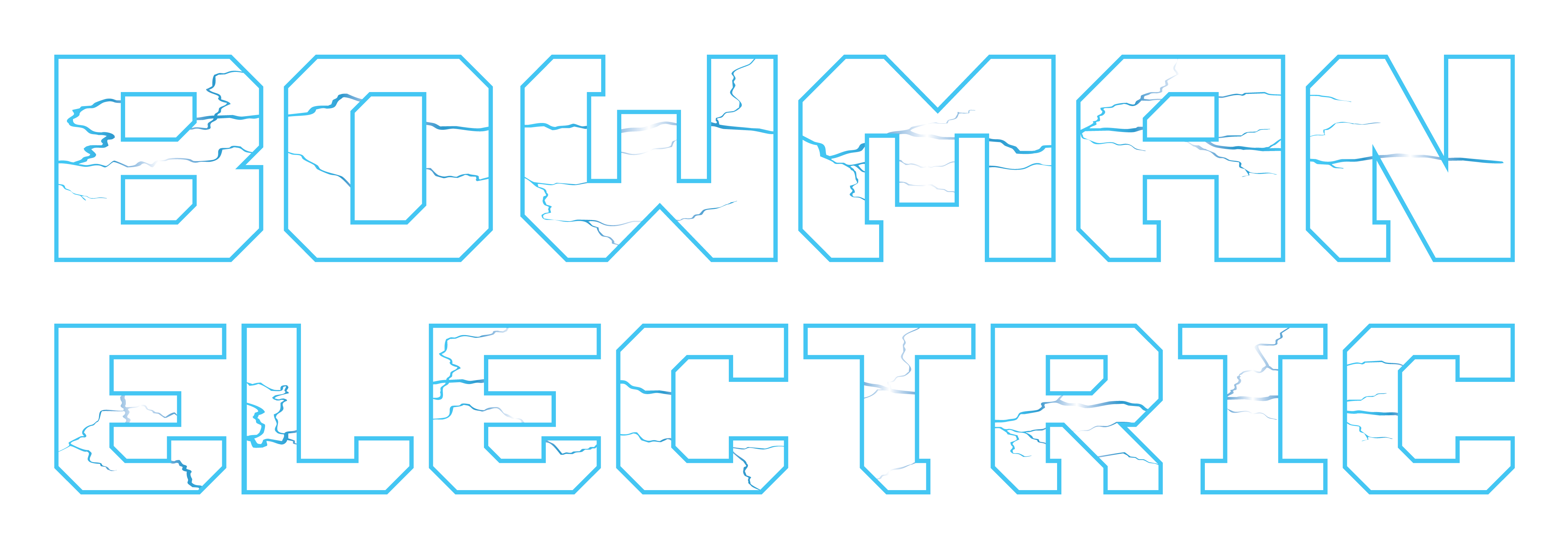Understanding Electrical Power Outages in Your Home: Common Causes Beyond Utility Issues
- Leanne Bowman
- Apr 16, 2024
- 2 min read

Electrical power outages can be more than just an inconvenience; they can disrupt your daily routine and even pose safety risks. While many homeowners immediately suspect utility company issues when the lights go out, several other factors within your own home can cause power outages. At Bowman Electric, we're here to help you understand these less obvious causes and provide guidance on how to manage and potentially prevent them.
1. Circuit Overloads: The Hidden Culprit
One of the most common reasons for a household power outage is an overloaded circuit. Modern homes are filled with high-demand electrical devices, and older electrical systems may not always keep up. Overloading occurs when too many devices draw power from the same circuit, leading to tripped circuit breakers or blown fuses. Preventing this involves:
Spreading out power usage among different circuits.
Upgrading your electrical panel to handle modern electrical loads.
Using power strips with overload protection to mitigate risks.
2. Faulty Wiring and Electrical System Failures
Aging or improperly installed wiring can lead to electrical failures that might not just cause outages but also pose significant fire hazards. Signs of faulty wiring include frequent breaker trips, flickering lights, and unusual buzzing or burning smells. Homeowners should:
Schedule regular inspections with licensed electricians.
Replace old wiring that no longer complies with your household's electrical demands.
Install arc-fault circuit interrupters (AFCIs) to detect and prevent dangerous arcing.
3. Ground Faults and Short Circuits
A ground fault occurs when an active electrical wire comes into contact with a ground wire or a grounded portion of the junction box. Short circuits, similarly, happen when a hot wire touches a neutral wire. Both scenarios can interrupt power and pose serious safety risks, including the potential for electrical shocks and fires. To prevent these:
Ensure proper insulation of wires.
Use ground fault circuit interrupters (GFCIs) in high-risk areas such as bathrooms and kitchens.
Conduct regular checks for any signs of wire damage or wear.
4. Malfunctioning Appliances and Hardware
Sometimes, the issue isn't with the electrical system but with the appliances themselves. Faulty appliances can trip breakers, causing power outages. To address this:
Regularly maintain and service major appliances to ensure they are in good working condition.
Be cautious of older appliances that may require more power than what your electrical system can provide safely.
Consider energy-efficient models that not only reduce power consumption but are also designed to be safer and less taxing on your home's electrical infrastructure.
5. Environmental Factors
External influences like weather conditions or animals can affect your home’s electrical system indirectly. Tree branches can fall and damage your home’s power lines, or small animals can chew through wires. To safeguard against environmental factors:
Trim trees regularly to prevent branches from coming into contact with electrical lines.
Inspect the exterior of your home for potential animal nests or damage that could impact your electrical system.
Understanding and addressing these potential causes of power outages in your home can help you maintain a safe and functional living environment. At Bowman Electric, we encourage homeowners to take proactive steps towards ensuring their electrical systems are not only efficient but also robust against various non-utility related disruptions. For further advice or assistance, always feel free to contact a professional electrician.
Protect your home, your family, and your peace of mind by staying informed and prepared for any electrical contingency.




